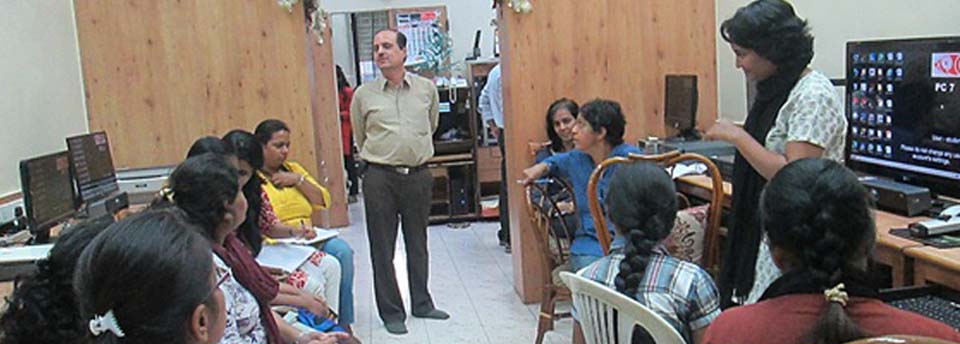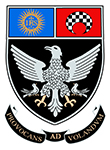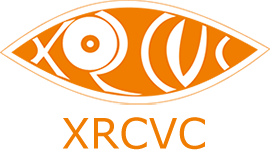
Education Access
The right to education in India has become a fundamental right for all. Inclusive education is not only the shift seen in educational philosophy, but also a legal right available to any person with disability in India. However, several hurdles remain in making this a reality. The XRCVC’s education initiative involves work on various projects at the school, college and higher education levels.
School Outreach and Training Programmes
For inclusive education to succeed at the school level, multiple strategies are required for all the stakeholders involved. The XRCVC works at all these multiple levels.
- Workshops at mainstream schools for teachers, management, parents and students to create an inclusive mindset
- Hands-on training and support to mainstream schools and teachers to ensure effective inclusion of visually challenged students
- Train-the-Trainer workshops with special educators to build skilled professionals
- Direct training and support to students and families
If you are a school, educational institution, special set-up, a relative of someone with blindness or low vision or a visually challenged person yourself, feel free to contact us to make your set up inclusive.
Resources:
- I for INCLUSION - A Handbook on Mainstreaming Education for Students with Blindness and Low Vision, 2014
- I for INCLUSION Compendium v1.0 - Compendium designed by the XRCVC to complement the Capacity Building Workshop for classroom teachers of blind and low vision students
- General Teaching Guidelines v1.0
Expanding Options
As students with blindness and low vision seek to pursue careers of their choice and interest, a roadblock has been old systems and education rules that still discriminate based on disability despite guaranteed right to education for all. The XRCVC has strongly advocated against this differential treatment in various fields of education.
Over the years, the XRCVC has been able to create rules and systems for various streams of education including the fields of Science, Physiotherapy and Psychology. Some of these have been achieved through dialogue with the Boards whilst others, such as access to the Physiotherapy course, are the result of a long legal struggle.
If you would like to know of rules that the XRCVC has been able to initiate in these areas, you may read the following:
In addition,the XRCVC has provided hands-on support to visually challenged students in these streams to make their educational material and examination methods accessible.
For the Physiotherapy stream, the XRCVC has gone the extra mile to work with leading physiotherapy equipment manufacturers to create accessible instruments. Currently, the IFT, SD and Ultrasound machines with complete accessibility features are readily available for purchase. If you would like to know more, please feel free to contact us.
If you would like to read the Hon’ble Bombay High Court orders which opened the Bachelors in Physiotherapy course to the blind and low vision, click here[Image only].
Policy Papers on Inclusion of Persons with Blindness and Low Vision in Physiotherapy Education and Practice
A Policy paper for upholding the rights of education and equality for persons with blindness and low vision
Persons with blindness and low vision have been successfully practicing physiotherapy as a profession across the globe and in India for many years. Yet, the evolution of regulatory frameworks within the medical and allied health fields in India recently has had a negative impact on access to education and practice of physiotherapy for persons with blindness and low vision in the country. This paper analyses the scope of access to physiotherapy education and practice for persons with blindness and low vision in India and outlines the key challenges and recommendations across the checkpoint framework.
Regulatory gaps in physiotherapy education and practice in India: A ground-level challenge
XRCVC Building Blocks of Inclusion Policy Paper on Inclusion in Physiotherapy Education and Practice
The paper "Building Blocks of Inclusion: Policy Paper for Physiotherapy Education and Practice for Persons with Blindness and Low Vision" is very relevant to our time because recent changes in the regulatory frameworks of health sciences and allied health sciences in India have denied access to the education and practice of physiotherapy for persons with blindness and low vision, despite it being an established profession for them in India and internationally. This paper highlights core principles for the inclusion of persons with blindness and low vision in physiotherapy education and practice in India based on the laws of the land and international best practices and has been designed for regulators, education institutes, employers, professional associations, policy makers and other relevant State and national authorities in the field of physiotherapy education and practice who can apply it to their specific context.
XRCVC Building Blocks of Inclusion Policy Paper on Inclusion in Physiotherapy Education and Practice
Making Numbers and Reactions Accessible: The Mathematics & Science Access Project
Traditionally, blind and low-vision students have been encouraged to drop out of studying Mathematics and Science at the higher secondary level. This single wrong decision resulting from lack of awareness and pre-held myths has a significant impact on career choices later.
The XRCVC has actively started work in this critical area. Currently, the XRCVC has completed a research study on mathematics and science access for blind and low-vision students with a focus on India. The study has helped the XRCVC identify key areas of intervention required in the field which the Maths and Science project will be taking up. XRCVC will be initiating work in the realm of content (books and teaching-learning aids) availability for mathematics and science learning and teaching, awareness and training in the area as also network building and direct support services. You may access the research study report here
Equal and Accessible Examination Systems: Right to Fair Evaluations
A constant challenge in India has been lack of universal examination guidelines for the blind and low-vision across varied examinations. This has resulted in constant roadblocks of ill-equipped writers, lack of appropriate extra time provisions, faulty examination-taking methods which puts the blind and low-vision students at a disadvantage at times of evaluations and results. In addition, these systems have not adapted to new technologies and methods for testing within the Science stream of education.
Given the critical need, the XRCVC, in partnership with the Score Foundation, began work in this area. A joint representation was submitted to the Ministry of Social Justice and Empowerment. Based on the same, the MSJ&E has issued uniform guidelines applicable across India in February 2013. These mark a beginning of the efforts to bring in effective guidelines for examinations. The XRCVC hopes to make significant headway in this aspect in the coming years to ensure that the national guidelines are effectively implemented within educational institutions and exam-taking bodies.
To know of existing examination rules and the XRCVC–Score Foundation representation, you may read:










